#Study in Belfast University
Explore tagged Tumblr posts
Text

us crossing the street in belfast
#university#study abroad#241210 update#i miss you professor……#you are so funny i wish i still saw you every day 😭😭#i was so happy studying abroad#my professor said they drive crazy in belfast and we needed to cross the street together all 40 of us ‘like a macedonian phalanx’#never forgettt
0 notes
Text

239 notes
·
View notes
Text
Seasonal timings of plants are advancing an average of four times faster than insects, throwing key interactions like pollination out of sync. This is according to new findings from researchers at the University of Oxford and Chinese Academy of Sciences that will be presented at the British Ecological Society Annual Meeting in held Belfast December 12–15. A study of more than 1,500 species of herbivorous insects in Europe, spanning 34 years of data, has found that 60% of insects are already struggling to keep up with the plants they rely on because climate change is advancing key seasonal timings (phenology), such as plant blooming or insect emergence, earlier in the year, at different rates.
Continue Reading.
293 notes
·
View notes
Text
As war rages between Israel and Hamas in the Gaza Strip, it is hard to envision an end to the conflict. For decades, though, a growing movement of Palestinian and Israeli women has not only envisioned a peaceful coexistence, but also demanded it.
Just three days before Hamas’s Oct. 7, 2023, attack, thousands of women from two peacebuilding groups gathered at Jerusalem’s Tolerance Monument for a rally and march. Israelis from Women Wage Peace carried blue flags, and Palestinians from Women of the Sun flew yellow ones.
Members of the two groups traveled to the Dead Sea—believed since ancient times to have healing qualities—and set a table. Women from both sides pulled up chairs as a symbol of a good-faith resumption of negotiations to reach a political solution.
Women Wage Peace formed in response to Operation Protective Edge, which was Israel’s 2014 invasion of Gaza in the wake of then-U.S. Secretary of State John Kerry’s failed effort to restart final status negotiations.
“We, Palestinian and Israeli mothers, are determined to stop the vicious cycle of bloodshed,” reads the preamble to their campaign, the Mother’s Call. This campaign was nine months in the making, and it involved aligning around a single agenda that demands a political solution within a limited time frame.
They set the table to show the importance of dialogue and women’s involvement in decision-making. But in the war between Israel and Hamas that has started since then, women’s voices are largely missing from negotiations and consultations.
Ensuring women’s participation isn’t about equity or fairness or a show of inclusion. It’s about winning the peace.
In 2014, Laurel Stone, then a researcher at Seton Hall University, conducted a quantitative analysis of 156 peace agreements over time. She found that when women are decision-makers—serving as negotiators and mediators—the probability of an agreement lasting at least two years increased by 20 percent. The probability of the agreement holding for 15 years increased by 35 percent.
Many studies show that women tend to be more collaborative, more focused on social issues over military issues, and less likely to attack those who hold differing views. With women at the table, the potential for risk-taking behavior and attacks on perceived enemies may be lower. In diverse teams, decisions are more likely to be based on facts than assumptions.
While men are more likely to be fighters in war, the work of holding families and communities together more often falls to women, and according to some studies, it’s women who more frequently stand up for a return to negotiations, civilian protection, and an end to violence.
“We learned from the cases of Northern Ireland and Liberia,” Yael Braudo-Bahat, the co-director of Women Wage Peace, told Foreign Policy. Women’s active participation greatly strengthened these peace and recovery processes.
Ahead of the formal talks that led to the Belfast Agreement in Northern Ireland, Catholic and Protestant women’s groups formed the Northern Ireland Women’s Coalition and gained two seats at a table of 20 in formal negotiations. As one of the few groups that moved beyond the sectarian divide, its members were seen as honest brokers. They represented civil society concerns and helped ensure that the agreement included commitments for social healing and integration.
Because the brutality of war falls disproportionately on women—they frequently are the first to go hungry, serve as the de facto caretakers, and become the victims of increased gender based violence—they are often committed to finding a path to peace even when male leaders won’t compromise.
During the Second Liberian Civil War, women played a heroic role by successfully pressuring male decision-makers to negotiate. The documentary Pray the Devil Back to Hell, directed by Gini Reticker and produced by Abigail Disney, popularized the incredible story of how women convinced the warring parties to attend peace talks in Accra, Ghana.
“We were the ones watching our children die of hunger … we were the easiest targets of rape and sexual abuse,” said Nobel Prize laureate Leymah Gbowee, the founder of the Women for Liberia Mass Action for Peace grassroots movement, which played a major role in pushing then-President Charles Taylor to sign a peace agreement in 2003. This common suffering among women formed the basis for unity across political and religious divides.
In Israel and Gaza, women will need to play an important role in the implementation of any new accord between Israel and Palestine, Braudo-Bahat said. Her organization’s partnership with its Palestinian counterpart, Women of the Sun, has remained steadfast, even after learning that her co-founder, Vivian Silver, 74, was murdered by Hamas on Oct. 7.
“We continue our plans—we work together, and we don’t hide it,” she said. “It might be dangerous to the Women of the Sun, but they are so courageous.”
Although many Palestinians want peace, for others, “peace is normalization,” a member of Women of the Sun wrote to Foreign Policy via WhatsApp, choosing to go by the initials M.H. to preserve her anonymity and safety. Some Palestinians think that “it’s something shameful to be dealing with Israel,” she added, because it could imply that the Israelis’ treatment of, and policies toward, Palestinians are tolerable.
“I believe we should actively engage and collaborate, even if some label it as normalization,” M.H. said. “I am committed to working toward a better future for us.”
International law is on the side of these women. United Nations Security Council Resolution 1325, adopted unanimously more than 23 years ago, urges all member states to increase the participation of women in peace and security efforts, and highlights women’s essential role in preventing war, protecting civilians, and negotiating lasting peace.
Despite Israel’s deteriorating track record with regard to women’s rights and roles as decision-makers, women are involved in the war as politicians, members of the military and civilians. Women in politics have made important advances for gender equity, although among the 32 cabinet ministers sworn in a year ago, only five were women. One of those women ministers was dismissed amid the recent closure of the Ministry for the Advancement of Women.
The reality for women in Gaza is far more challenging when it comes to holding leadership positions. Women generally do not participate in public political activities or hold public office, although Hamas appointed 23-year old Isra al-Modallal as its first female spokesperson in November. She told the Guardian newspaper that she is not a member of Hamas or any political party.
At the start of the conflict, Hamas had just one woman, Jamila al-Shanti, 68, serving as part of the organization’s 15-member political bureau. Al-Shanti, who was also a founder of Hamas’s women’s movement, died in an Israeli airstrike on Oct. 19.
“You can hear amazing rhetoric and lip service, even from the Palestinian leadership,” Dr. Dalal Iriqat, an assistant professor at the Arab American University in the West Bank, told Foreign Policy. “But when it comes to practice, I always find a scarcity of women in decision-making.”
Women’s organizations in the Palestinian territories and in Israel have a rich history of political engagement, however. Palestinian women created social structures such as health clinics and orphanages for displaced Palestinians following the 1948 Arab-Israeli War. Following the Six-Day War in 1967, with traditional political structures in tatters and both Gaza and the West Bank under Israeli occupation, women of every social class stepped up.
It was through the networks they formed that a new cadre of women activists emerged as a force in December 1987, when Palestinian frustration with Israeli rule broke out in a popular uprising that became known as the First Intifada, or “shaking off.” Underlying this largely nonviolent Palestinian struggle was a collective social, economic, and political mobilization led by women.
Palestinian political leadership acknowledged women’s centrality in the Intifada, which paved the way for negotiations with Israel when it included three women—Suad Amiry, Zahiria Kamal, and Hanan Ashrawi—as part of the delegation that participated in the Middle East peace talks that culminated with the Madrid Conference in October 1991.
Ultimately, though, exiled Palestinian Liberation Organization leaders shunted the Madrid framework to begin secret negotiations with Israel that resulted in the security-focused Oslo Accords and the establishment of the Palestinian Authority. Under their leadership, Israeli occupation, and the failures of the Oslo Accords, democratic ideals and women’s rights eroded.
Israel and the United States have discussed a potential role for the Palestinian Authority in Gaza after the military operation. The Palestinian Authority has three women ministers, including its minister for women’s affairs, though women still struggle for equal opportunities and freedom from violence.
“Women usually refrain from being [an] activist in politics,” said an activist in the West Bank who withheld her name for security reasons. “Women are frightened to be involved in political activities, because they will be put in jail or be subjected to any kind of violence.” And the conditions are much worse for women when funding is restricted, as well as under Hamas, she said.
Serena Awad, a Gazan nonprofit worker who is now living in Rafah, told Foreign Policy that Gazan women are directing and managing many aspects of the humanitarian response. These women work for the United Nations as well as in health, cultural, child protection, human rights, sports, and legal organizations.
“I have lived through six aggressions, and every time, I wait for my turn to die,” said 24-year-old Awad. “What I want the world to know is that women in Gaza are like any other women—we study, go to work, have our own family, but we suffer.”
Israeli and Palestinian women working as peacebuilders say they need more international support. Women’s organizations are notoriously underfunded in the best of times, with only 0.4 percent of global gender-related funding going directly to women’s rights organizations, according to calculations by the Association for Women’s Rights in Development.
During crises, women’s rights often take a back seat. Women of the Sun’s 2024 budget is approximately $100,000, and Women Wage Peace’s budget is approximately $1 million, according to the organizations’ representatives.
Women’s groups are more likely to be effective during negotiations and during the implementation of recovery programs when they have access to external funding. During the peace process between Sudan and South Sudan, for example, South Sudanese women were highly mobilized as delegates, but some had to pause their involvement so they could go back to earning money.
In addition to funding, democratic countries have a role to play by insisting on women’s participation in negotiations, said M.H. of the Women of the Sun. She and other peacebuilders say that the United States and the United Nations should be more active in promoting women as counterparts, negotiators, and experts.
“By will, things can happen,” M.H. told Foreign Policy “And if the US says it [that women should be involved in negotiations], it can happen.”.
Talks convened by Qatar, the United States, and Egypt to end the conflict between Hamas and Israel are underway. These countries and other regional players—including Jordan, Israel, and the Palestinian Authority, have previously created national action plans that recognize the unique impact of war on women and their crucial role in promoting peace, culminating in 107 countries worldwide forming national action plans to empower women.
Still, news coverage reveals little or no evidence of efforts by these countries to promote women’s participation in the Israel-Hamas conflict.
The U.S. State Department is “working to ensure the expertise of women from civil society and in government is incorporated in any process related to the current conflict in Gaza,” wrote a spokesperson in an email.
If the political will for participation exists, both Israelis and Palestinians have a robust list of women advocates from which to draw for official and nonofficial negotiations and discussions. A diverse list of 12 Israeli and Palestinian women who are qualified to participate in negotiations was provided by the 1325 Project run by members of Women Lawyers for Social Justice—known in Israel as Itach Ma’aki—to the U.S. Embassy and other embassies and international bodies.
“At least one person will be engaging in Track 2 and 3 efforts, and she was approached through us by an international body,” said 1325 project co-director Netta Loevy, referring to nonofficial negotiations and consultations.
Braudo-Bahat, meanwhile, urged policymakers to involve women in discussions now—not after violence ends. “The day after the war is yesterday … we need to start now,” she said.
Back in Gaza, the water tastes like poison; it’s freezing, and Awad, the 24-year-old nonprofit worker, keeps losing weight. She asked almost a dozen Gazan women leaders what they think should happen to resolve the war and to ensure that women participate in negotiations.
No one could give her an answer. They were busy responding to humanitarian needs, and telecommunication and internet services were out.
“Nothing has changed, but what can we do about it? All we can do is waiting and praying for this to end,” Awad wrote to Foreign Policy through WhatsApp, which only works for her about once every four days.
Iriqat, the Arab American University professor, has one wish: “That someone considers that if women are in charge, and involved, a more strategic agreement could hold.”
113 notes
·
View notes
Text


Prof Joseph Black chemist, researcher, teacher, first to identify carbon dioxide, was born on April 16th 1728.
Born in Bordeaux to an Irish father and a Scottish mother, Joseph Black spent his working life in Scotland. He is considered one of the world’s most eminent chemists and one of the founding fathers of the science of chemistry.
Black was a modest man and an excellent teacher. His meticulous research techniques were an inspiration to others in his day and have remained so today. Joseph was educated at home by his mother up until he was 12 when he was sent to live with relatives in Belfast and attend school there.
Four years later he went to Glasgow University to study medicine. Scottish doctor and chemist Dr William Cullen, (yes the same guy from my earlier post) was beginning a new course of lectures in chemistry at this time. Black became Cullen’s laboratory assistant. Chemistry was a passion for Black, alongside his medical education, which he completed in Edinburgh in 1754.
Black was always a meticulous chemist, keeping careful note of all his results and measurements. It was this which led to his discovery of carbon dioxide. He intended to pursue this study further. However from 1756 he became occupied with duties associated with his new appointment as Professor of Chemistry at Glasgow University.
Black met James Watt at Glasgow, University and they became friends and collaborators. Watt the skilled engineer investigating the efficiency of steam engines produced model engines for Black to use in his lectures on the properties of heat.
As well as Watt, another close friend of Black was James Hutton. Hutton left his collection of fossils to Black upon his death in 1797. Both men were Fellows of the newly founded Royal Society of Edinburgh. They were also members of the Oyster Club, a group of intellectuals who met regularly in Edinburgh. In 1766, Black moved back to Edinburgh to become Professor of Chemistry. He was known as an excellent teacher who inspired a number of his students to pursue careers in chemistry.
He was also widely respected both as a scientist and a physician. Several medical works of the late 18th century contain dedications to him. Black was called upon as a consultant to give his expert opinion in many different areas. Although Black appears to have had many friends, he never married. He died in 1799, quietly in his chair, holding a cup of milk. Black’s obituary was written by the philosopher Adam Ferguson.
Black has a rather impressive grave in Greyfriars Churchyard, Edinburgh. Both Edinburgh and Glasgow universities have named their chemistry buildings after him.
17 notes
·
View notes
Note
As we all know Wikipedia isn't a great resource for historically accurate research. Do you have some recommendations of alternatives/good history websites with a good range of content about different countries and time periods?
(Context: I need to do some serious research for my novel, but don't know where to find good and accurate information online)
Primary sources are your best friend and failing that, secondary sources that are written and researched by those who have studied the primary sources. Here are just a few good websites:
JSTOR
National Archives
This website from Queens University Belfast (https://libguides.qub.ac.uk/history/onlineresources)
New York Public Library
The Labyrinth
57 notes
·
View notes
Text
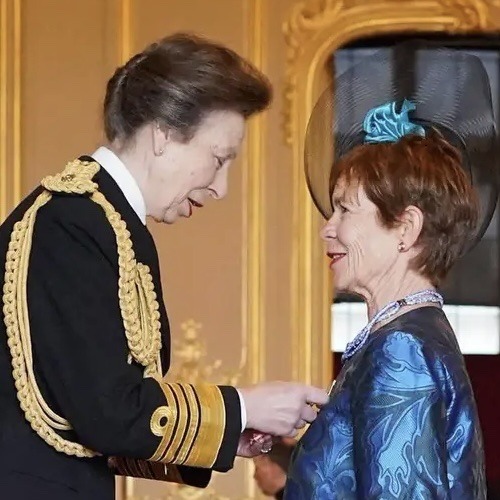
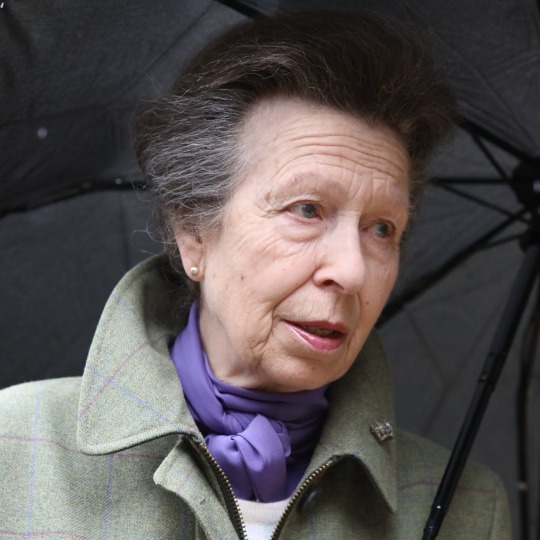
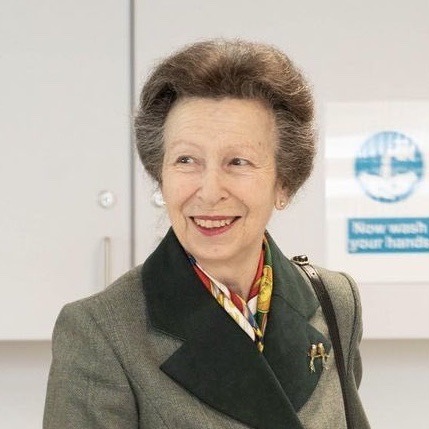
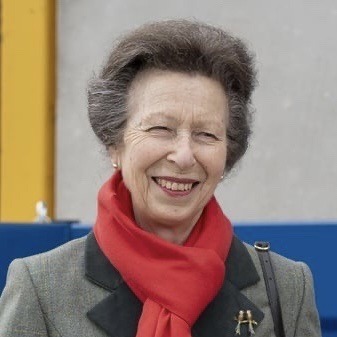
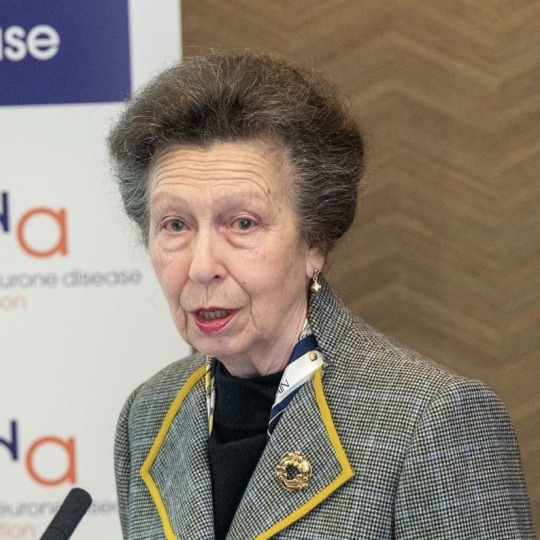
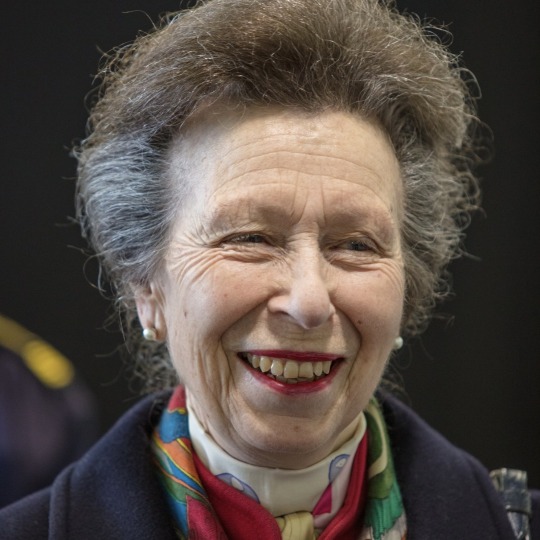
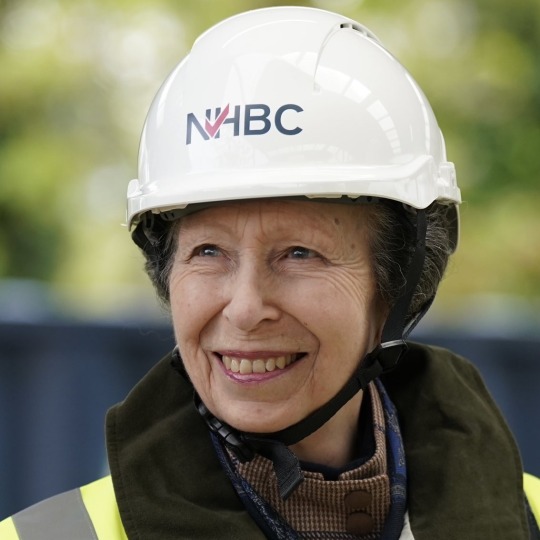
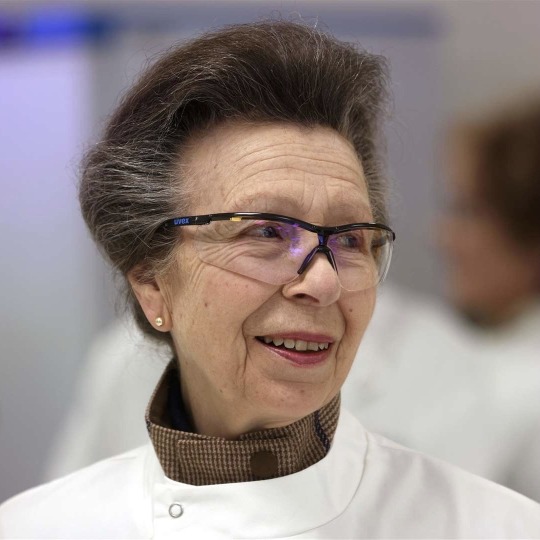
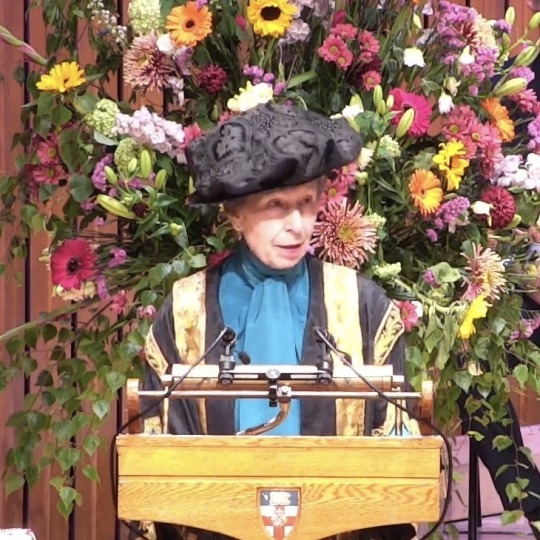
The Princess Royal’s Official Engagements in April 2024
06/04 As President of the Working Clumber Spaniel Society, held a Training Day to mark their 40th Anniversary at Gatcombe Park. 🐶
09/04 On behalf of The King, held an Investiture at Windsor Castle.🎖️
With Sir Tim Opened Tideway’s Chelsea Quay, on Chelsea Embankment in London. 🌊
With Sir Tim, As Master of the Corporation of Trinity House, attended the 70th anniversary of Re-Hallowing Service at St Olave’s Church, followed by a Reception at Trinity House. ⛪️🍾
10/04 Visited Helmshore Mills Textile Museum in Rossendale, Lancashire. 🧵👕
Visited Trawden Village Community Projects in Trawden near Colne, Lancashire. 🏡
Visited HMS VENTURER in build at Venturer Hall in Fife. ⛴️🏴
11/04 In Northern Ireland Princess Anne; 🇮🇪
Visited Fleming Agri Products Limited in Derry. 🚜
Visited Londonderry Port and Harbour Commissioners, to commemorate its 170th Anniversary. 🚢
Visited the South West College Erne Campus building in Enniskillen. 🏫
Visited the renovated Enniskillen Workhouse in Enniskillen. 💼
As Patron of Maritime UK, attended the Northern Ireland Maritime and Offshore Cluster launch Reception at Belfast Harbour Office. ⚓️���
12/04 As Royal Patron of the Motor Neurone Disease Association, attended the Northern Ireland Conference at Dunsilly Hotel in Antrim. 🇮🇪👨🦽
As Patron of Tenovus Cancer Care, visited a Mobile Support Unit at Bronglais General Hospital in Aberystwyth. 🏴🏥
15/04 With Sir Tim As the Former President of the Royal Association of British Dairy Farmers, presented The Princess Royal Award and Royal Dairy Innovation Award at Gatcombe Park. 🐄🥛🏆
16/04 As Royal Patron of the National Coastwatch Institution, this visited Fleetwood Station in Fleetwood, followed by a Reception at Marine Hall. 🔎🌊
As Patron of the Pony Club, visited Wrea Green Equitation Centre in Preston, to mark the 25th of the Pony Club Centre Membership Scheme. 🐴
As President of the Carers Trust, visited Sefton Carers Centre in Liverpool, to mark its 30th anniversary. 🧑🦯🩺
17/04 On behalf of The King, held two Investitures at Windsor Castle. 🎖️
18/04 Attended the Lord Mayor's Big Curry Lunch at Guildhall. 🍛
As President of The Duke of Edinburgh's Commonwealth Study Conferences, held a Dinner at Buckingham Palace for the President's Council and the Caribbean-Canada Leaders' Dialogue. 🗺️🍽️
19/04 On behalf of The King, held an Investiture at Buckingham Palace. 🎖️
21/04 Unofficial As President of the Working Clumber Spaniel Society, hosted a test day at Gatcombe Park. 🐶
22/04 As trustee of the council of St George’s House Princess Anne;
Attended a council meeting at St George’s House. 💼
Attended a Lecture in St. George's Chapel. 🎓
Attended a Dinner at the Vicars' Hall. 🍽️
23/04 On behalf of The King, held two Investitures at Windsor Castle. 🎖️
As Royal Patron of the Special Boat Service Association, held a Dinner at Windsor Castle. 🚤🍽️
24/04 As President of the Riding for the Disabled Association, visited the Cavalier Centre, and presented The King’s Awards for Voluntary Service in Farley, Much Wenlock. 🐎🏆
As Patron of Save the Children UK, visited the Lyth, Ellesmere, the birthplace of Eglantyne Jebb. 🏠
Visited the Jebb Memorial Garden at Cremorne Gardens in Ellesmere. ⛲️
25/04 Attended "DNA Day" at Illumina Centre in Great Abington. 🧬
Opened the National House Building Council's Apprenticeship Training Hub at Histon Football Club. 👷
As Patron of the Royal College of Midwives, visited Hinchingbrooke Hospital Maternity Unit. 👶🏥
As Colonel of The Blues and Royals (Royal Horse Guards and 1st Dragoons), visited The Household Cavalry Mounted Regiment at Hyde Park Barracks. 🐴💂
As Chancellor of the University of London, attended an Institute of Commonwealth Studies Reception at the Senate House, to mark its 75th anniversary. 🎓
27/04 As Admiral of the Sea Cadet Corps, attended the National Drill and Piping Competition at HMS Raleigh. 🫡⚓️
30/04 As Guardian of the Chaffinch Trust, attended a Reception at the Reform Club. 🥂
As Chancellor of the University of London, attended a Graduation Ceremony at the Barbican Centre. 🎓
As Commandant-in-Chief of the First Aid Nursing Yeomanry (Princess Royal’s Volunteer Corps), presented Coronation Medals at Wellington Barracks in London. 🫡🎖️
Total official engagements for Anne in April: 39
2024 total so far: 171
Total official engagements accompanied by Tim in April: 3
2024 total so far: 32
FYI - due to certain royal family members being off ill/in recovery I won't be posting everyone's engagement counts out of respect, I am continuing to count them and release the totals at the end of the year.
#aimees unofficial engagement count 2024#april 2024#always there to support his wife#not all engagements are listed on here#if you would like a full list plz dm me 🥰#excited for next month#two overseas visits and the start of the more summery engagements!!!#princess anne#princess royal#tim laurence#timothy laurence#not as many as previous months because she took a few days off after easter
51 notes
·
View notes
Text
"Recent research has revealed that Earth’s atmosphere is far more responsive to solar activity than previously understood. A team from Queen’s University Belfast has discovered a fascinating synchronization between solar flares—intense bursts of energy from the sun—and the pulsations within Earth’s atmosphere. This groundbreaking study highlights how quickly our atmosphere reacts to solar events, which could have significant implications for technologies like GPS and radio communications. By examining a powerful solar flare event from 2012, scientists were able to demonstrate that atmospheric changes occurred just 30 seconds after the pulses from the sun, revealing a rapid response mechanism that underscores the interconnectedness of our planet with solar phenomena."
"Researchers utilized space-based satellites to monitor the sun’s emissions and ground-based GPS receivers to assess changes in atmospheric density. Remarkably, they found rhythmic pulses emanating from the sun every 90 seconds while simultaneously observing corresponding atmospheric responses 30 seconds later.
This synchronization indicates that Earth’s atmosphere has a unique sensitivity to fluctuations in solar radiation, allowing it to react swiftly to changes in solar activity. The findings suggest that during strong flares, disturbances could manifest almost immediately on Earth, (...)."
The research is published in the Journal of Geophysical Research: Space Physics.
continue reading article
#sun#solar activity#magnetism#plasma#energy#earth#earth atmosphere#magnetic field#earth magnetic field#earth pulsations#interconnectedness#holistic#resonance#waves#rhythm#rhythmic pulses#sun cycles#life#science
3 notes
·
View notes
Text
#OTD in 1969 – Bernadette Devlin was elected MP for Mid Ulster, standing as the Independent Unity candidate; at 21 years old, she was Britain’s youngest ever female MP and the third youngest MP ever.
Devlin was born in Cookstown, Co Tyrone to a Roman Catholic family. She attended St Patrick’s Girls Academy in Dungannon. She was studying Psychology at Queen’s University Belfast in 1968 when she took a prominent role in a student-led civil rights organisation, People’s Democracy. Devlin was subsequently excluded from the university. She stood unsuccessfully against James Chichester-Clark in the…
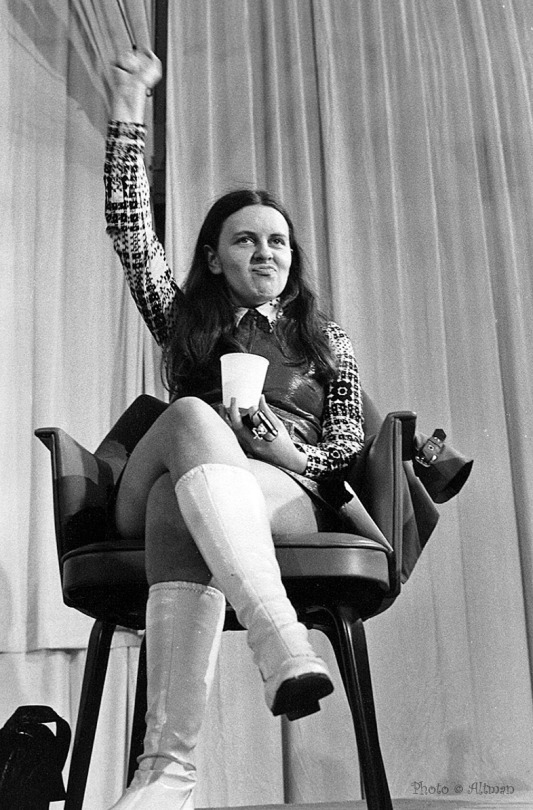
View On WordPress
#Belfast#Bernadette Devlin#Bernadette Devlin McAliskey#George Forrest#Irish Republican Socialist Party#Mid-Ulster constituency#Northern Ireland general election#Queen&039;s University#Seamus Costello#Ulster Unionist Party Member of Parliament for Mid Ulster#Unity ticket
10 notes
·
View notes
Text
MODERN VERSE
Childhood
Unaware he was adopted, Aedan adored his ma but struggled to connect with his pa or his many siblings.
He grew up on the struggling family farm, spending most of his time either with the animals, his grandparents and his uncle (on his pa's side).
His uncle was his best friend. But when he was twelve, an incident in the nearby woods led to his uncle's death.
An investigation decided that it was an accident, leading to no criminal charges.
However, Aedan's pa hated him so much that he refused to let him return home with him. He then revealed that Aedan was adopted and was not family.
Instead of letting him go to a care home, Aedan's grandparents took responsibility for him and took him out of the small community.
They travelled for a short time. But while back in Northern Ireland, Aedan and his grandparents were in a terrible car accident.
After their deaths, Aedan was sent to a care home. When his pa was contacted, his pa blamed him for the grandparents' deaths.
Aedan was a lonely boy at the care home, avoiding other kids and adults.
He spent most of his time in the care home garden or surrounding farmland and woods.
Even though corporal punishment was mostly banned, he still would frequently be punished for things such as his lisp or returning from school covered in dirt.
The Gang
Dunnebar Oprawca approached Aedan while he was walking home from school one day and asked him to deliver something for him. Aedan reluctantly obeyed because he was going that direction.
After that, Dunne wormed his way into Aedan's life and paid Aedan for making more deliveries.
He eventually invited Aedan to come meet his friends. They welcomed him gladly and Aedan thought he finally found a place he belonged.
Dunne and his friend Werner encouraged Aedan to run away from the care home to live with the gang. Another gang member, Dedrek tried to convince him not to.
Aedan seriously considered running away with the gang, when Werner revealed his true colours and attacked him. Dunne saved Aedan but it confirmed that Dedrek was right.
Aedan moved into the halfway house social services prepared for him and he applied for universities with Dedrek's help.
Dunne bought a dog for Aedan to try force him to stay.
But Aedan eventually moved to Belfast University, to study architecture hoping to join his pa's company and regain his love.
While at university, Aedan started dating an exchange student, Gabino.
Jealous, Dunne tried to get Aedan's attention. When that didn't work, Dunne violently attacked Gabino to scare him off.
Architect
After graduating as an architect, Aedan was hired by his pa's company.
He tried his hardest to impress him. But nothing he did was good enough.
Every failure made Aedan feel more and more unwanted, leading him to fall in and out of his tumultuous relationship with Dunne.
It came to a head when Aedan's pa fired him.
Unable to pay rent, he had to move in with Dunne.
When he felt most trapped, though, Dedrek offered to give him a freelance position at the publishing company he ran.
Aedan took the job and moved into a shared apartment with a friend, Neris.
After, he had a relatively stable life until Dunne joined the publishing company.
Aedan immediately fell back into his old ways with Dunne. And after he accidentally burned down the kitchen of the apartment he shared with Neris, he was forced to move back in with Dunne.
Escape
Dunne's grip on Aedan's life tightened again, his abuse worsening with time.
It was Dedrek again who helped Aedan leave. He gave Aedan a loan to start his own business restoring old homes.
Aedan left Dunne again, hopefully for good this time.
2 notes
·
View notes
Text
New research led by Queen's University Belfast has made a breakthrough in the field of microbiology, which could lead to the development of new treatments for people with compromised immune systems, such as those with cystic fibrosis. To conduct their study the researchers looked at the bacterium Achromobacter, which can cause chronic lung infection and tissue damage in the airways. The study reveals how this bacterium overcomes the body's immune defenses to multiply and continue to grow. The findings have been published in Cell Reports.
Continue Reading.
149 notes
·
View notes
Text

Black hole destroys star, goes after another
A massive black hole has torn apart one star and is now using that stellar wreckage to pummel another star or smaller black hole that used to be in the clear.
This discovery, made with NASA's Chandra X-ray Observatory, Hubble Space Telescope, NICER (Neutron Star Interior Composition Explorer), Neil Gehrels Swift Observatory, and other telescopes, helps astronomers link two mysteries where there had previously only been hints of a connection. The study is published in the journal Nature.
In 2019, astronomers witnessed the signal of a star that got too close to a black hole and was destroyed by the black hole's gravitational forces. Once shredded, the star's remains form a disk that circles around the black hole, like a type of stellar graveyard.
Over a few years, however, this disk has expanded outward and is now directly in the path of another star, or possibly a stellar-mass black hole, orbiting the massive black hole at a previously safe distance. This orbiting star is now repeatedly crashing through the debris disk, about once every 48 hours, as it circles. When it does, the collision causes bursts of X-rays that astronomers captured with Chandra.
"Imagine a diver repeatedly going into a pool and creating a splash every time she enters the water," said Matt Nicholl of Queen's University Belfast, United Kingdom, the lead author of the study. "The star in this comparison is like the diver and the disk is the pool, and each time the star strikes the surface it creates a huge 'splash' of gas and X-rays. As the star orbits around the black hole, it does this over and over again."
Scientists have documented many cases where an object gets too close to a black hole and gets torn apart in a single burst of light. Astronomers call these "tidal disruption events."
In recent years, astronomers have also discovered a new class of bright flashes from the centers of galaxies, which are detected only in X-rays and repeat many times. These events are also connected to supermassive black holes, but astronomers could not explain what caused the semi-regular bursts of X-rays. They dubbed these "quasi-periodic eruptions."
"There had been feverish speculation that these phenomena were connected, and now we've discovered the proof that they are," said co-author Dheeraj Pasham of the Massachusetts Institute of Technology. "It's like getting a cosmic two-for-one in terms of solving mysteries."
This tidal disruption event now known as AT2019qiz was first discovered by a wide-field optical telescope at the Palomar Observatory, called the Zwicky Transient Facility, in 2019. In 2023, astronomers used both Chandra and Hubble to study the debris left behind after the tidal disruption had ended.
The Chandra data was obtained during three different observations, each separated by about 4 to 5 hours. The total exposure of about 14 hours of Chandra time revealed only a weak signal in the first and last chunk, but a very strong signal in the middle observation.
From there, Nicholl and his colleagues used NICER to look frequently at AT2019qiz for repeated X-ray bursts. The NICER data showed that AT2019qiz erupts roughly every 48 hours. Observations from Swift and India's AstroSat telescope cemented the finding.
The ultraviolet data from Hubble, obtained at the same time as the Chandra observations, allowed the scientists to determine the size of the disk around the supermassive black hole. They found that the disk had become large enough that if any object was orbiting the black hole with a period of about a week or less, it would collide with the disk and cause eruptions.
"This is a big breakthrough in our understanding of the origin of these regular eruptions," said Andrew Mummery of Oxford University. "We now realize we need to wait a few years for the eruptions to 'turn on' after a star has been torn apart because it takes some time for the disk to spread out far enough to encounter another star."
This result has implications for searching for more quasi-periodic eruptions associated with tidal disruptions. Finding more of these would allow astronomers to measure the prevalence and distances of objects in close orbits around supermassive black holes. Some of these may be excellent targets for the planned future gravitational wave observatories.
NASA's missions are part of a growing, worldwide network of missions with different but complementary capabilities, watching for changes like these to solve mysteries of how the universe works.
IMAGE: Credit: X-ray: NASA/CXC/Queen's Univ. Belfast/M. Nicholl et al.; Optical/IR: PanSTARRS, NSF/Legacy Survey/SDSS; Illustration: Soheb Mandhai / The Astro Phoenix; Image Processing: NASA/CXC/SAO/N
youtube
2 notes
·
View notes
Text



December 6th 1799 Prof Joseph Black chemist, researcher, teacher, first to identify carbon dioxide, died.
Black was born at Bordeaux on 16 April 1728. His father was an Irish wine merchant and he received his early education from his Scottish mother. At age 12, Black moved to Belfast where his education continued before he enrolled at the University of Glasgow, where he studied medicine under William Cullen.
Cullen was also beginning to teach chemistry at Glasgow for the first time in 1747 and Black became his assistant in the laboratory; a position he held for three years. In 1752, Black transferred to the University of Edinburgh to continue his medical studies, continuing in the field of chemistry and beginning to experiment on the causticity of alkalis. In 1754 Black wrote his thesis based on his experiments and achieved his MD. His thesis was communicated to the Philosophical Society of Edinburgh in June 1755 and published in a volume of their essays the following year. This was to be his most significant publication..
Black began practising as a physician and from 1755 acted as substitute professor of chemistry. Cullen arrived in Edinburgh from Glasgow in 1756 and Black filled his position of professor of anatomy and botany in Glasgow. The following year he was made professor of medicine. Black took up teaching enthusiastically and developed his private practice. Early in his period of teaching at Glasgow, Black met James Watt, and the two later entered into a partnership together. Black’s major research in this period involved the theory of heat and he developed concepts of latent and specific heat.
In 1766, Black was appointed chair of the institutes of medicine in Edinburgh, succeeding John Rutherford. Black was a popular and illustrious teacher and his lecture courses attracted large numbers of students. Black played a major role in the Royal College of Physicians of Edinburgh, as president and in revising new editions of the pharmacopoeia. Black also acted as one of the managers of the Royal Infirmary for several years.
Black never married but lived a well-ordered life. He continued teaching until 1796. Black died on 6 December 1799 and is buried in Greyfriars Kirkyard as seen in the third pic, the second pic is Black demonstrating steam power
8 notes
·
View notes
Text
The Three Students pt 1
Three of them? Are they medical students, because we've already discussed how disturbing that gets.
It was in the year '95 that a combination of events, into which I need not enter, caused Mr. Sherlock Holmes and myself to spend some weeks in one of our great University towns...
Is he withholding the name of the town for its protection?
It will be obvious that any details which would help the reader to exactly identify the college or the criminal would be injudicious and offensive.
Oh, he is.
Honestly Oxford and Cambridge, and probably most of the other universities, had the resources to sue him to hell and back for libel, so that might be a wise course of action. Other universities were available, but there were only about 12 universities in Britain at that time, and he specifies they were spending weeks in the town, so it won't be the University of London. That leaves (in age order): Oxford, Cambridge, St Andrews, Glasgow, Aberdeen, Edinburgh, Durham, Belfast, Cork, Galway, Manchester, or Cardiff. The University of Wales would only have been 2 years old in 1895, so Cardiff probably wouldn't count as a 'great' university town. Honestly, I don't know if anything from Durham onwards would have been regarded as 'great' because they were all founded in the 1800s. Durham would have been over 60 years old, does that count as a 'great university town' to Watson? I don't know.
Honestly, he's probably leaving it vague so people can project their own biases onto it. The rivalries between universities are longstanding.
He's never specified leaving anything out to prevent offence before, though. Like, maybe he changes the names, but he's never specified anything, and has a few times referred to people being aware of things from the papers. I think it really shows Watson's priorities here that he's obscuring the information in this one especially when he's published other people's dirty laundry for all the world to see.
“I trust, Mr. Holmes, that you can spare me a few hours of your valuable time. We have had a very painful incident at St. Luke's, and really, but for the happy chance of your being in the town, I should have been at a loss what to do.”
The more they talk about how painful and scandalous the incident is, the more convinced I am that I will not find it particularly painful or scandalous. But I may be wrong.
Also, the fact that we're referring to colleges does narrow it down a bit. As far as I know, most universities in the UK don't have a collegiate system. Oxford and Cambridge do, St Andrews does (on a smaller scale, I believe), Aberdeen does (similarly to St Andrews, only 3, I think), and Durham does. I don't think Edinburgh and Glasgow have colleges in the same way, and I can't find any evidence that they used to in a quick bit of internet searching.
The fact that Holmes was looking into English Charters makes me think that this is probably in England, though, not Scotland, so I'm still thinking Oxford or Cambridge, or possibly Durham, but less likely as it's a newer university.
"...this is just one of those cases where, for the credit of the college, it is most essential to avoid scandal."
Oh boy, I already don't like these people. I smell cover-up all over this. I can feel the outrage already starting to brew inside me and we don't even know what's happened yet.
"My subject is Greek, and the first of the papers consists of a large passage of Greek translation which the candidate has not seen. This passage is printed on the examination paper, and it would naturally be an immense advantage if the candidate could prepare it in advance."
Is this a cheating scandal? Seriously?
Also, I assume it's taken from an extant Greek text, so surely there's always a chance that that student will have studied that text in their own time as part of their reading? They presumably have access to the university library, which presumably contains texts in Ancient Greek?
"The only duplicate which existed, so far as I knew, was that which belonged to my servant, Bannister, a man who has looked after my room for ten years, and whose honesty is absolutely above suspicion."
Nobody is above suspicion.

"I found that the key was indeed his, that he had entered my room to know if I wanted tea, and that he had very carelessly left the key in the door when he came out."
A likely story.
"The proof was in three long slips. I had left them all together. Now, I found that one of them was lying on the floor, one was on the side table near the window, and the third was where I had left it.”
That's just incompetence. You didn't even try to leave them close to where you found them, unknown interloper? Come on. You're better than this. You must have some brains.

"A large sum of money is at stake, for the scholarship is a very valuable one, and an unscrupulous man might very well run a risk in order to gain an advantage over his fellows."
So this is for a scholarship? So probably not a spoilt little rich kid. Unless it is a spoilt little rich kid who can't be bothered to do the work.
“Bannister was very much upset by the incident. He had nearly fainted when we found that the papers had undoubtedly been tampered with."
Bannister knows who did it. He's probably related to them. He let them in.
“This was not all. I have a new writing-table with a fine surface of red leather. I am prepared to swear, and so is Bannister, that it was smooth and unstained. Now I found a clean cut in it about three inches long—not a mere scratch, but a positive cut. Not only this, but on the table I found a small ball of black dough, or clay, with specks of something which looks like sawdust in it."
...This I do not understand. The cheater stopped to do some arts and crafts? They clearly were cutting something, but what's the clay for? Putty eraser? Some weird way of making a copy?
"Either I must find the man or else the examination must be postponed until fresh papers are prepared, and since this cannot be done without explanation there will ensue a hideous scandal, which will throw a cloud not only on the college, but on the University."
Yeah, I was right. I don't consider this particularly scandalous. You could totally make up an excuse why the exam needs to be changed at the last minute, and even if you didn't I still don't think 'someone peeked at the answers' is the kind of scandal that could bring an entire university into disrepute. But what do I know? I'm sitting here in the future where there's an entire industry of students paying other people to write essays for them and if they don't want to pay they can just get an AI to write it instead.
"Had anyone visited you in your room after the papers came to you?” “Yes; young Daulat Ras, an Indian student who lives on the same stair, came in to ask me some particulars about the examination.”
Fingers crossed - please don't be racist. please don't be racist. please don't be racist.
Of course, that's only one student, according to the title there are three.
“Where is Bannister now?” “He was very ill, poor fellow. I left him collapsed in the chair."
Yeah, he knows something. He's got to.
“Well,” said he, “let us go round. Not one of your cases, Watson—mental, not physical. All right; come if you want to."
This bit made me laugh. Has Watson just been sitting there watching you pore over obscure English charters for hours, Holmes? And how many times has he come with you when nothing physical needed doing? But no, this isn't one of his cases.
“Dear me!” said Holmes, and he smiled in a singular way as he glanced at our companion. “Well, if there is nothing to be learned here we had best go inside.”
Clearly there was something to be learned there and Holmes is being smug about finding it when no one else has realised.
It was a small pyramid of black, putty-like stuff, exactly like the one upon the table of the study. Holmes held it out on his open palm in the glare of the electric light. “Your visitor seems to have left traces in your bedroom as well as in your sitting-room, Mr. Soames.”
OK, now it's a scandal. You really shouldn't be having students in your bedroom, Mr Soames. Especially right before exam time, and with allegations of cheating hovering in the air. What will the ethics committee say? Now, obviously, two consenting adults, but there are some distinct questions that need to be asked about these things in the circumstances.
Not that I expect there was an ethics committee in 1895.
“What could he have wanted there?”
Mr Soames, blissfully unaware of the world.

“I will tell you, then, in a few words the character of the three men who inhabit these rooms. The lower of the three is Gilchrist, a fine scholar and athlete; plays in the Rugby team and the cricket team for the college, and got his Blue for the hurdles and the long jump. He is a fine, manly fellow. His father was the notorious Sir Jabez Gilchrist, who ruined himself on the turf. My scholar has been left very poor, but he is hard-working and industrious. He will do well."
So he really needs the scholarship then, is what I'm hearing here. Also 'fine, manly fellow'. People really did just say things like that back then, huh?
“The second floor is inhabited by Daulat Ras, the Indian. He is a quiet, inscrutable fellow, as most of those Indians are. He is well up in his work, though his Greek is his weak subject. He is steady and methodical."

Ah, yes, racism. Could be worse racism, but still. And this guy probably isn't going to do well in the exam, so wants to up his grade.
“The top floor belongs to Miles McLaren. He is a brilliant fellow when he chooses to work—one of the brightest intellects of the University, but he is wayward, dissipated, and unprincipled. He was nearly expelled over a card scandal in his first year. He has been idling all this term, and he must look forward with dread to the examination.”
And the spoilt little rich kid, previously hypothesised, seemingly lazy and didn't bother with his lessons so now he needs to catch up. Seems to obvious from the description, though. My money is on the Fine, manly fellow at the moment, because clearly he's the one Soames doesn't suspect at all. OR all three of them are working together. I assume there are other people also taking the exam.
“That is singular, because you sat down in that chair over yonder near the corner. Why did you pass these other chairs?”
So he could be closer to the bedroom door? Though I don't know how that would help him? To see out the window?
“Oh, I would not venture to say, sir. I don't believe there is any gentleman in this University who is capable of profiting by such an action. No, sir, I'll not believe it.”
These guys really don't like cynicism, huh? Couldn't possibly be anyone who did this. It all must have just happened on its own.
Bannister might have let one or more of them in under false pretences and then realised what was going on after the fact. That would explain his excessive reaction (although, it occurs to me that since they're taking this so seriously, he might lose his job over it, which would explain a large reaction, but then sitting in the furthest seat possible is odd).
20 notes
·
View notes
Text
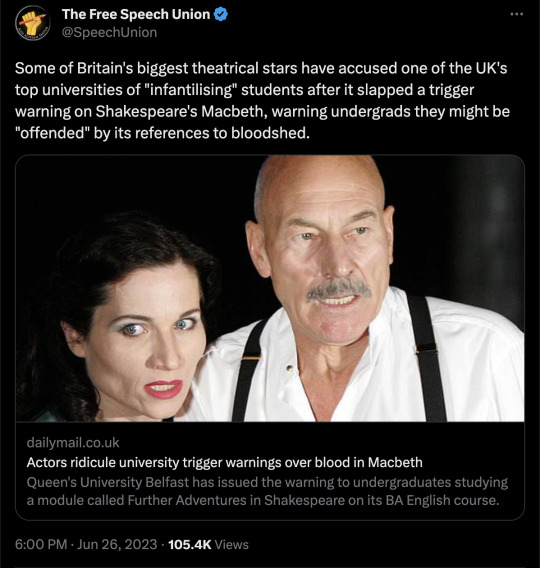
By: Chris Hastings
Published: Jun 25, 2023
Is this a case of crazy wokery I see before me? Actors ridicule university trigger warnings over blood in Macbeth
Queen University Belfast has issued a warning to students studying Shakespeare
It stressed Macbeth 'could cause offence' due to its depictions of 'bloodshed'
Similar warnings have been applied to the Twelfth Night and Titus Andronicus
It is Shakespeare's most violent play – a bloody saga packed with stabbing, strangling and poisoning that reaches a grisly climax with a beheading.
And for more than 400 years audiences have been enthralled – if a little disturbed – by the butchery of Macbeth.
But now one of the UK's top universities stands accused of 'infantilising' students after it warned them they might be 'offended' by the 'bloodshed' in the play.
Queen's University Belfast has issued the warning to undergraduates studying a module called Further Adventures in Shakespeare on its BA English course.
'You are advised that this play could cause offence as it references and / or deals with issues and depictions relating to bloodshed,' the warning, a copy of which has been obtained by this newspaper under Freedom of Information laws, states.
The university has also applied similar warnings to the Bard's Richard III, Twelfth Night and Titus Andronicus.
Some of Britain's biggest theatrical stars last night branded the warnings counterproductive and unnecessary. They point out that Macbeth, which was first performed in 1606, is particularly popular with schoolchildren.
Sir Ian McKellen, who starred opposite Dame Judi Dench in Sir Trevor Nunn's landmark 1976 RSC production, said warnings such as this could undermine the dramatic impact of the piece.
He said: 'My sister (a teacher) used to show Sir Trevor Nunn's TV version of the 1976 Macbeth to her teenage students.
'She'd pull down the blinds, start the video and then leave the classroom and count the minutes till she heard the first scream from within. Had the youngsters had trigger warnings in advance, the effect of the play would have been considerably diminished.'
He added: 'I remember talking to a priest who saw a number of performances of the stage production at the Stratford Other Place.
'He would hold out his crucifix throughout the performance, to protect the audience from the devilry conjured by the cast. I suppose these triggers are something similar.'
Call The Midwife star Jenny Agutter, who has acted in Shakespeare's The Tempest, King Lear and Love's Labour's Lost, said: 'I don't understand why anyone should feel warnings are necessary for Shakespeare's plays. Unless we need to be constantly warned that depicting human nature might cause offence.'
Sir Richard Eyre, the former Director of the National Theatre who has directed productions of Hamlet, Richard III and King Lear, said: 'It's completely fatuous and totalitarian to try to police people's minds with these absurd warnings. Ridiculous, contemptible, infantilising.
Presumably the people putting out the trigger warnings feel they are able to cope with the content of these plays, but weaker, younger, less intelligent people aren't.' Doctor Who star David Tennant and The Good Wife actress Cush Jumbo are due to star in a new production of Macbeth which opens in London in December. It is one of four major productions of the play set to open in the UK.
Queen's Belfast's trigger warning for Twelfth Night centres on what it calls the 'depictions relating to sexuality or gender. Warnings for Richard III and Titus Andronicus relate to depictions of disability in the former and 'race and or racism' in the latter. A spokesperson for Queen's University Belfast declined to comment.
==
'[A priest] would hold out his crucifix throughout the performance, to protect the audience from the devilry conjured by the cast. I suppose these triggers are something similar.'
Very apt. It's magical thinking. Especially considering they've not only been shown to not work, they've been shown to make things worse.
Also: Spoiler, much?
#Queen's University#trigger warnings#Shakespeare#Macbeth#emotional fragility#infantilization#perpetually offended#easily offended#student fragility#i'm offended#offended#religion is a mental illness
35 notes
·
View notes
Text
THE GOSPEL OF NOEL O’GRADY.
name: noel ian o’grady
aliases & nicknames: dr. o’grady
age: 38
birthday: october 30
gender: cis male
pronouns: he/him
height: 6 feet 1 inch / 184 cm
build: lean
hair: ginger
eyes: hazel green
faceclaim: domhnall gleeson
+ traits: driven, organized, analytical, confident, quick learner
- traits: unempathetic, unethical, selfish, arrogant marital status: single
occupation: medical examiner zodiac sign: scorpio
biography:
content warnings for: parental death, murder, discussion of autopsies, gun violence
Noel is the only child of a fabric empire heiress turned oncology pharmacist and a cardiothoracic surgeon. Although his family hailed from Northern Ireland and he himself was born in Belfast, they soon would move to London so his father could take up a position at Cromwell Hospital. He would grow up surrounded by medical journals and diagrams, and became fascinated with human anatomy. His relationship with his parents was predictably distant, but this shared interest gave reason for conversation and closeness.
Like any proper wealthy Brit, Noel went to a posh boarding school for a number of years. There he would foster his love for science and medicine further. He excelled at biology and chemistry and set his sights on becoming a surgeon like his father.
Noel would attend his father’s alma mater, Oxford University, for his medical training. It would become quickly apparent that while Noel had the intelligence and the stomach for medical work, he lacked the personality or the bedside manner. He quickly found himself unsure of his future, his legacy, and this was not acceptable.
As he was weighing his options and his future, his world would be shaken to its core. One phone call would change his life. Something about a robbery gone wrong, gunshot wounds, condolences, and identifying bodies in a morgue. His parents were dead, and as their next of kin, it was his job to confirm that it was truly them and handle their affairs. Heartbreak, anger, and shock would rattle him. But it would be followed by something unexpected: peace. In the cold light of the morgue, standing above the metal slabs and fridge doors where bodies were kept cool, Noel saw his future. He knew what he wanted to do with his life, and that was invigorating.
He knew he could not let tragedy ruin him. He intended to carry on his family’s legacy, but now he would do so as a doctor for the dead: a medical examiner.
On the surface, Noel was cold. He seemed uncaring as he soldiered on through his education and moved towards his new career path. Inside, however, was turmoil. Noel withdrew, and with his inheritance would move himself to an isolated Edwardian manor house in the countryside. When he wasn’t working towards becoming a medical examiner, he was at home dealing with family affairs and drowning his sorrows in music, liquor, and sex.
Eventually, Noel would achieve his dream. He would take up a spot as a medical examiner in the city of London, working to solve mysterious deaths and bring peace to grieving families. More importantly, he could surround himself with death, with quiet, and work in peace among the dead. Cadavers never complain, and each one gives him a chance to feel emotionally connected to his parents. To have his hands in someone’s chest cavity like his father would, to carefully put the pieces of a person back together like his mother would, to spend moments in the morgue with corpses as he did the last time he saw his mother and father. He studies cases like his parents, hopeful to one day crack the case and find their killers. Ethical or not, he takes notes home, takes photos home, and abuses his connections and power to search for answers all these years later. He has slowed, and his conviction has waned, but it has not gone completely. But with each passing day, week, month, and year, Noel grows increasingly jaded and misanthropic towards the living.
He remains forever grateful for the time he spends with the dead.
“LIFE IS HARD. THEN YOU DIE. THEN THEY THROW DIRT IN YOUR FACE. THEN THE WORMS EAT YOU. BE GRATEFUL IT HAPPENS IN THAT ORDER.” — DAVID GERROLD
verses: tba
1 note
·
View note